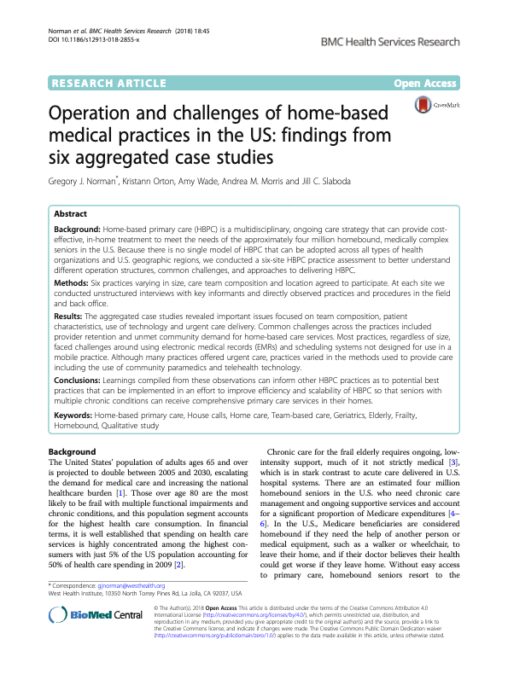Operation and challenges of home-based medical practices in the US: findings from six aggregated case studies
The study explores six home-based primary care (HBPC) practices across the United States, providing insights into their operational structures, patient demographics, and challenges. It highlights the varying team compositions, ranging from physician-centric models with limited support to larger, diverse teams including nurse practitioners, social workers, and administrative staff. Recruitment methods vary, from self-selection and referrals to partnerships with hospitals, while technology use, such as electronic medical records (EMRs) and telehealth, faces integration challenges in mobile settings.
Operational challenges identified include provider burnout and retention, unmet demand for services, EMR integration issues, and logistical difficulties in scheduling and routing providers. To address these challenges, the study emphasizes the need for sustainable Medicare reimbursement models and team-based care approaches. It also suggests potential best practices, such as integrating telehealth and community paramedics, to improve efficiency and scalability while maintaining care quality.
The research provides a comprehensive overview of HBPC practices and their role in delivering care to medically complex, homebound seniors. It highlights the importance of team-based care, technological integration, and innovative solutions to meet the growing demand for HBPC, ensuring high-quality, accessible care for vulnerable populations.

